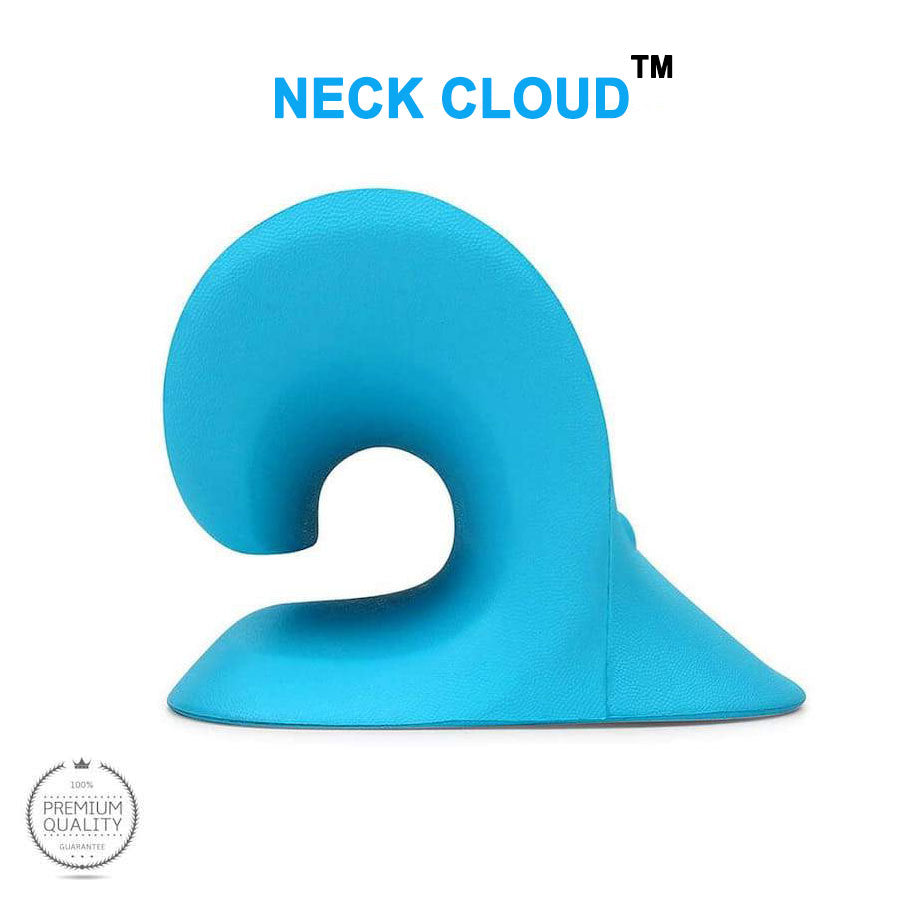Boost Your Stance and Lower Neck Discomfort with the Neck Cloud
The Impact of Stress And Anxiety on Neck Pain: Methods for Reducing Stress and Pain
In today's fast-paced globe, it's clear that tension has actually become a common consider the onset and worsening of neck discomfort. The intricate connection in between stress and muscle mass stress frequently leaves individuals seeking relief from the pain that follows. By exploring targeted techniques intended at lowering tension and promoting relaxation, one can start to address the root triggers of neck discomfort and job towards a more balanced state of wellness. Join us on a trip to unravel the impact of tension on neck discomfort and find reliable ways to minimize pain and boost total top quality of life.
Understanding Stress-Related Neck Discomfort
Neck discomfort is an usual issue that can usually be credited to stress and anxiety. Stress-related neck discomfort can materialize as tension, stiffness, or pain in the neck and shoulder location. The link between tension and neck pain hinges on the body's physical action to tension, which can result in muscle stress and rigidity in the neck muscle mass. Chronic stress can bring about consistent neck pain and exacerbate status quo like cervical spondylosis or muscle mass strains.

Identifying Common Stress Areas
One common stress area is the neck, where anxiety usually shows up literally. Stress migraines, tight neck muscles, and restricted variety of activity are usual signs and symptoms of stress-related neck tension. Being conscious of these usual tension areas can assist people identify the physical signs of anxiety and take steps to address them before they rise right into chronic pain or pain.
Carrying Out Relaxation Strategies
To effectively manage stress-related tension in the body, executing leisure strategies is essential. Relaxation techniques are useful tools for reducing neck discomfort triggered by anxiety. Deep breathing workouts can aid calm the mind and loosen up strained muscular tissues in the neck and shoulders (neck cloud). Practicing mindfulness reflection can also be valuable in alleviating stress and anxiety and promoting relaxation. Progressive muscle leisure, where you methodically strained and then loosen up different muscular tissue groups, can launch built-up tension in the neck location. Furthermore, tasks like yoga and tai chi include both physical movement and leisure, making them efficient techniques for decreasing stress and neck pain. Taking normal breaks throughout the day to stretch have a peek at these guys and relax can protect against muscle mass rigidity and tension from collecting. By incorporating these relaxation strategies into your day-to-day routine, you can assist take care of stress levels, lower tension in the neck, and ease pain associated with stress-induced neck discomfort.
Including Self-Care Practices
Including self-care techniques is essential for maintaining overall wellness and managing stress-related neck pain see post efficiently. Taking part in routine exercise, such as mild extending workouts or yoga, can assist ease stress in the neck and shoulders. Exercising excellent stance throughout the day and taking constant breaks from long term resting or display time can likewise stop stress on the neck muscle mass.
Additionally, prioritizing sufficient sleep and establishing a regular rest regimen can contribute substantially to minimizing tension levels and promoting leisure. Developing a soothing bedtime regimen, such as reviewing a publication or taking a warm bathroom, can aid prepare the mind and body for relaxing sleep. In addition, preserving a balanced diet abundant in nutrients and staying hydrated can support overall wellness and minimize inflammation that might worsen neck pain.
Incorporating mindfulness techniques, such as deep breathing exercises or reflection, can assist manage stress and advertise relaxation. Requiring time for oneself, involving in hobbies, and establishing limits to protect individual time are also vital elements of self-care that can add to minimizing tension and alleviating neck discomfort.
Seeking Specialist Help
Just how can individuals properly deal with relentless neck pain that is influencing their day-to-day live and health? Seeking expert help can be a critical step in handling and alleviating neck discomfort. Consulting with medical care experts such as chiropractic specialists, physiotherapists, or orthopedic experts can give important understandings and tailored treatment strategies. These specialists can conduct complete analyses to diagnose the underlying root causes of over here neck discomfort and advise appropriate interventions.
Chiropractic doctors focus on spine adjustment strategies to boost placement and lower tension in the neck area. Physical therapists offer targeted stretches and exercises to strengthen muscles, improve flexibility, and enhance overall neck function. Orthopedic specialists can provide advanced medical interventions such as shots or medical alternatives for extreme instances of neck discomfort.
Final Thought

Stress-related neck pain can manifest as stress, stiffness, or pain in the neck and shoulder location. The link in between anxiety and neck pain exists in the body's physiological feedback to stress and anxiety, which can result in muscle mass tension and rigidity in the neck muscular tissues. Stress headaches, rigid neck muscular tissues, and limited range of motion are typical signs and symptoms of stress-related neck tension. By incorporating these relaxation techniques into your daily regimen, you can help manage stress levels, lower stress in the neck, and relieve pain connected with stress-induced neck pain.
